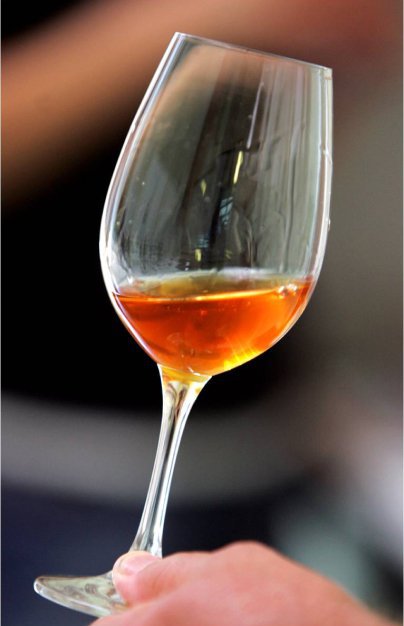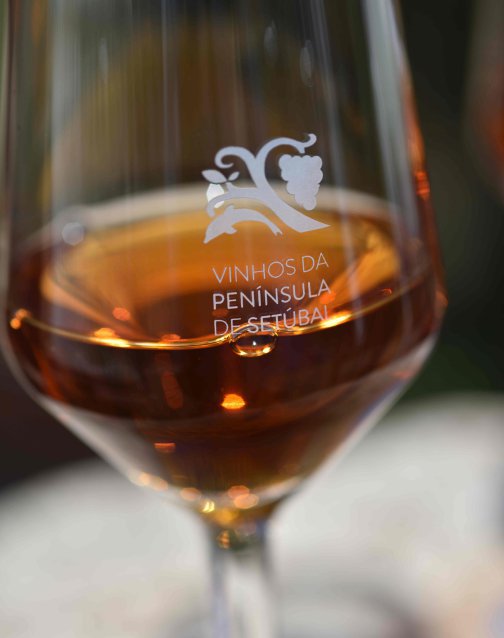About Moscatel wine
Moscatel is a particularly aromatic grape variety, with floral, citrus and grape aromas. It reaches high sugar levels when matured and is ideal for making fortified wines. Two regions in Portugal are famous for fortified Moscatel: the Douro and the Setubal Peninsula. On the other side of the Tejo River in the vicinity of the city of Lisbon, you can also find some in some locations.
Moscatel is a particularly aromatic grape variety, with floral, citrus and grape aromas. It reaches high sugar levels when matured and is ideal for making fortified wines. Two regions in Portugal are famous for fortified Moscatel: the Douro and the Setubal Peninsula. On the other side of the Tejo River in the vicinity of the city of Lisbon, you can also find some in some locations.
Moscatel has numerous variants around the world. Two of the main types are produced in Portugal, one known locally as Moscatel de Setúbal (whose international name is Moscatel of Alexandria), and Moscatel Galego Branco (Muscat Blanc à Petits Grains), the type found in the Douro, recognised worldwide as the most elegant and fragrant of the family - although elegance also depends on the location and management of the vineyard, and where and how the wine is made. Setúbal also has a small portion of what is thought to be a mutation of the Moscatel Galego Branco, the Moscatel Roxo. The historic Setúbal Protected Designation of Origin (PDO) vineyards (demarcated over 100 years ago) stretch over 15 kilometres north, west and east of the port city of Setúbal, on the limestone hills of the Serra da Arrábida Natural Park, where many of the finest Moscatel grapes grow.

Muscatel grape skins are very rich in flavour and are kept present during fermentation.
Muscatel grape skins are very rich in flavour and are kept present during fermentation.
When the wine reaches the indicated degree of sweetness grape brandy is added. The wine is then left together with the skins for three months or more to better absorb the flavour before aging for a minimum of 18 months in large wooden barrels. 'Marmalade ', 'Flowers' and 'grapes' are typical tasting notes for young Moscateis de Setubal - most are sold when they are between two and five years old. Pale in youth, Setubal darkens to a golden colour, and even mahogany if aged in wood, developing complex fig and walnut flavours.
A small proportion of Setubal wines are sold with ten or even twenty years of ageing in wood.
Moscatel de Setúbal was traditionally made with a minimum of 67% Moscatel grapes, but now, under EU legislation, it must contain at least 85% Moscatel for the grape name to appear on the label: as Moscatel de Setúbal, Moscatel Roxo or simply Roxo. Wines with percentages between 67% and 85% are labelled as "Setubal". However, the Moscatel flavour is powerful and dominant, leaving its mark. Setúbal wines are always markedly sweet, and can be sold with alcohol levels between 16º and 22º.



The Douro also has a Protected Designation of Origin for sweet fortified muscatels: Moscatel do Douro. The Moscatel Galego Branco vine can be found to some extent all over the demarcated Douro region, but particularly around the towns of Alijó and Favaios, at a high altitude, at the northern end of the Douro's central heart, Cima Corgo. Most of the Douro Muscat DOP comes from Favaios.
Moscatel do Douro (used also to intensify the aroma of white Ports) is capable of making particularly interesting and complex fortified Muscat wines. Douro Moscatel should contain a minimum of 85% Moscatel and at least 16.5º alcohol. These wines tend to have a good balance of acidity, floral and citrus aromas and flavours of orange peel or tangerine, apricot and butter, acquiring intense hints of dried fruit flavours depending on how long they are aged in wood. The minimum time in wood is 18 months, but most stay a little longer, while some Douro Muscatels are aged for 10 or 20 years, and are occasionally bottled as "Colheita", with the respective vintage indicated on the bottle.
